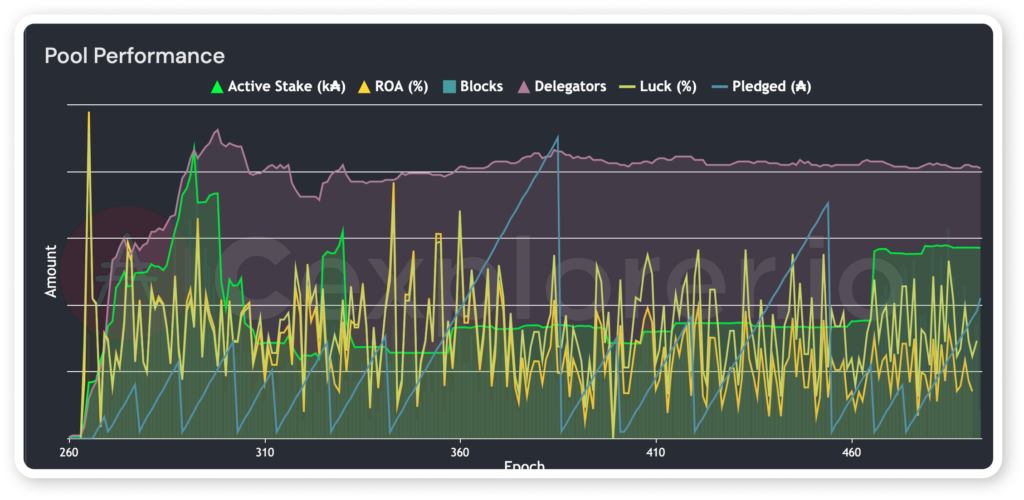
REWARD SYSTEM
By participating in the Cardano ADA network, you can earn rewards without transferring or locking your ADA.
Your ADA remains under your control, and there is no risk of losing or reducing your ADA—only increasing it.
Cardano ADA holders support the network’s growth, security, decentralization, and governance by staking their ADA.
To contribute, delegate your ADA to a pool operator, who will oversee the network and verify transactions on your behalf through the Proof of Stake (PoS) mechanism. Unlike Bitcoin’s Proof of Work (PoW) system, Cardano’s PoS allows ADA holders to earn rewards by delegating to a chosen pool. Selecting a reliable pool is crucial.

You need to choose a pool that is trustworthy and well-operated, as well as decide which pool is best to delegate to.
- Cardano ADA holders can contribute to building the Cardano network, maintaining security protocols, decentralization, and governance by staking (delegating) their ADA and earn rewards in return.
- You can contribute by delegating to a pool operator, who will monitor the network and verify transactions on your behalf. (This is due to the Proof of Stake (PoS) mechanism.)
- The mechanism adopted by Bitcoin and other cryptocurrencies is Proof of Work (PoW), where rewards are received by mining. However, Cardano uses PoS, so if you hold Cardano ADA, you can contribute to the network by choosing a pool to delegate. Then you can earn rewards.
Rewards are distributed every 5-day epoch
For example, if you delegate your ADA in epoch 261, your delegation becomes active in epoch 263, and your first reward is generated in epoch 264.Rewards are paid out between the 11th and 15th day post-delegation and continue every 5 days as long as you stake.
In terms of receiving rewards, payments are made every epoch. An epoch lasts for 5 days. For example, suppose you delegated your ADA on epoch 261. In that case, your delegation will be effective from epoch 263, 2 epochs after delegation.The first reward will be generated 1 epoch after delegation, which means that if you joined at epoch 261, your first reward will be received on epoch 264
Once you delegate, rewards will be paid out between the 11th and 15th day after delegation. After that, as long as you don’t unstake, rewards will be generated every epoch, which is every 5 days.

